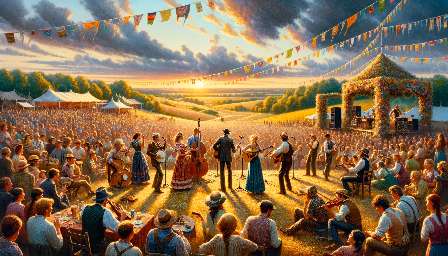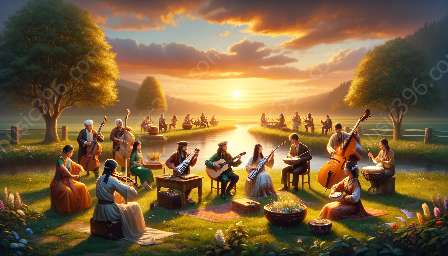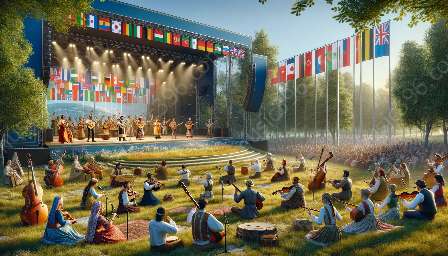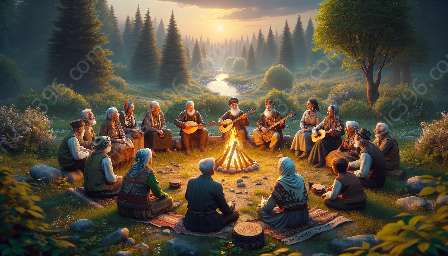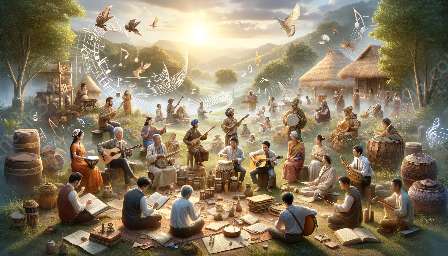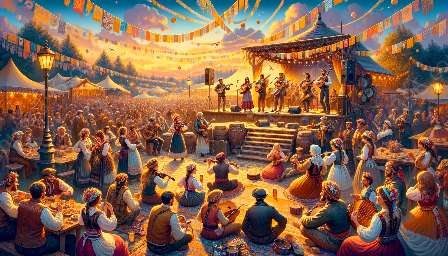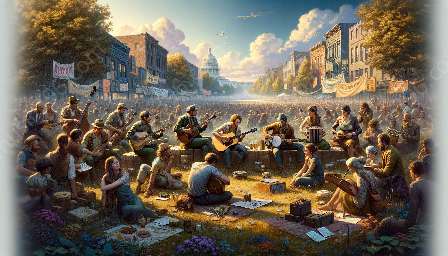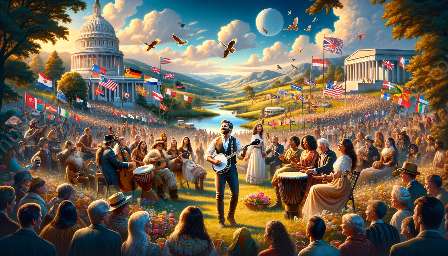Folk music and digital ethnomusicology are two interconnected fields that provide a deeper understanding of traditional music and its relevance in the digital age. This topic cluster explores the intersection of traditional folk music and modern technology, and how ethnomusicologists use digital tools to study, preserve, and promote folk music across diverse cultures.
The Significance of Folk Music
Folk music, often rooted in oral traditions and community practices, reflects the cultural heritage and history of a particular group or region. It encompasses a wide range of musical styles, instruments, and performance practices, and is a living testament to the shared experiences of communities over time. Whether it is passed down through generations or adapted to contemporary contexts, folk music serves as a powerful means of cultural expression and storytelling.
Traditional Music and Its Evolution
Traditional music evolves alongside the communities that perform it, adapting to changing societal dynamics, technological advancements, and global influences. The fusion of traditional and contemporary elements gives rise to new expressions of folk music, creating a dynamic landscape of musical diversity. Ethnomusicologists play a pivotal role in documenting and analyzing these transformations, shedding light on the ways in which traditional music continues to resonate with modern audiences.
Introduction to Ethnomusicology
Ethnomusicology is the study of music in its cultural context, encompassing the social, cultural, and historical dimensions of musical practices. Ethnomusicologists engage in fieldwork, archival research, and interdisciplinary analysis to understand the roles that music plays in society. They seek to comprehend the diverse ways in which music reflects and shapes human experiences, offering valuable insights into the complexities of musical traditions.
The Emergence of Digital Ethnomusicology
In the digital age, the field of ethnomusicology has witnessed a paradigm shift with the emergence of digital ethnomusicology. This branch of study utilizes digital technologies and tools to explore, preserve, and disseminate folk and traditional music. From audiovisual recordings and digital archives to online databases and interactive platforms, digital ethnomusicology revolutionizes the ways in which researchers, musicians, and enthusiasts engage with traditional musical practices.
Digital Tools for Ethnomusicological Research
- Audiovisual Recordings: Digital ethnomusicologists capture live performances, rituals, and musical traditions through high-quality audiovisual recordings, preserving the authenticity and nuances of folk music.
- Digital Archives: Online repositories and archives house a wealth of ethnographic materials, facilitating access to historical recordings, field notes, and visual documentation of traditional music.
- Online Databases: Digital platforms provide comprehensive databases of folk and traditional music, enabling researchers to analyze and compare musical repertoires from diverse cultural contexts.
- Interactive Mapping: Geographic information systems and interactive mapping tools allow for the visualization of musical landscapes, highlighting the geographical distribution and spatial dynamics of folk music traditions.
Collaborative Digital Projects
Digital ethnomusicology fosters collaborative projects that connect researchers, musicians, and communities across the globe. Through online initiatives and participatory platforms, individuals can contribute to the documentation and preservation of their musical heritage, promoting cross-cultural dialogue and understanding.
Promoting Folk Music in the Digital Sphere
With the global reach of digital platforms, folk music gains newfound visibility and accessibility. Artists and cultural practitioners leverage digital media to share traditional music, engage with audiences, and bridge geographical barriers. Digital ethnomusicology amplifies the voices of folk musicians, allowing their artistry to resonate beyond local contexts and reach a diverse audience.
Challenges and Opportunities
While digital ethnomusicology presents numerous opportunities for the study and dissemination of folk music, it also poses challenges related to intellectual property rights, cultural representation, and ethical considerations. Balancing technological innovation with cultural sensitivity is crucial in navigating the digital landscape of traditional music.
Future Directions
The future of folk music and digital ethnomusicology holds promise for further interdisciplinary collaborations, innovative digital methodologies, and inclusive approaches to cultural preservation. By harnessing the potential of digital tools and digital platforms, ethnomusicologists continue to enrich the understanding and appreciation of folk music across diverse communities.






